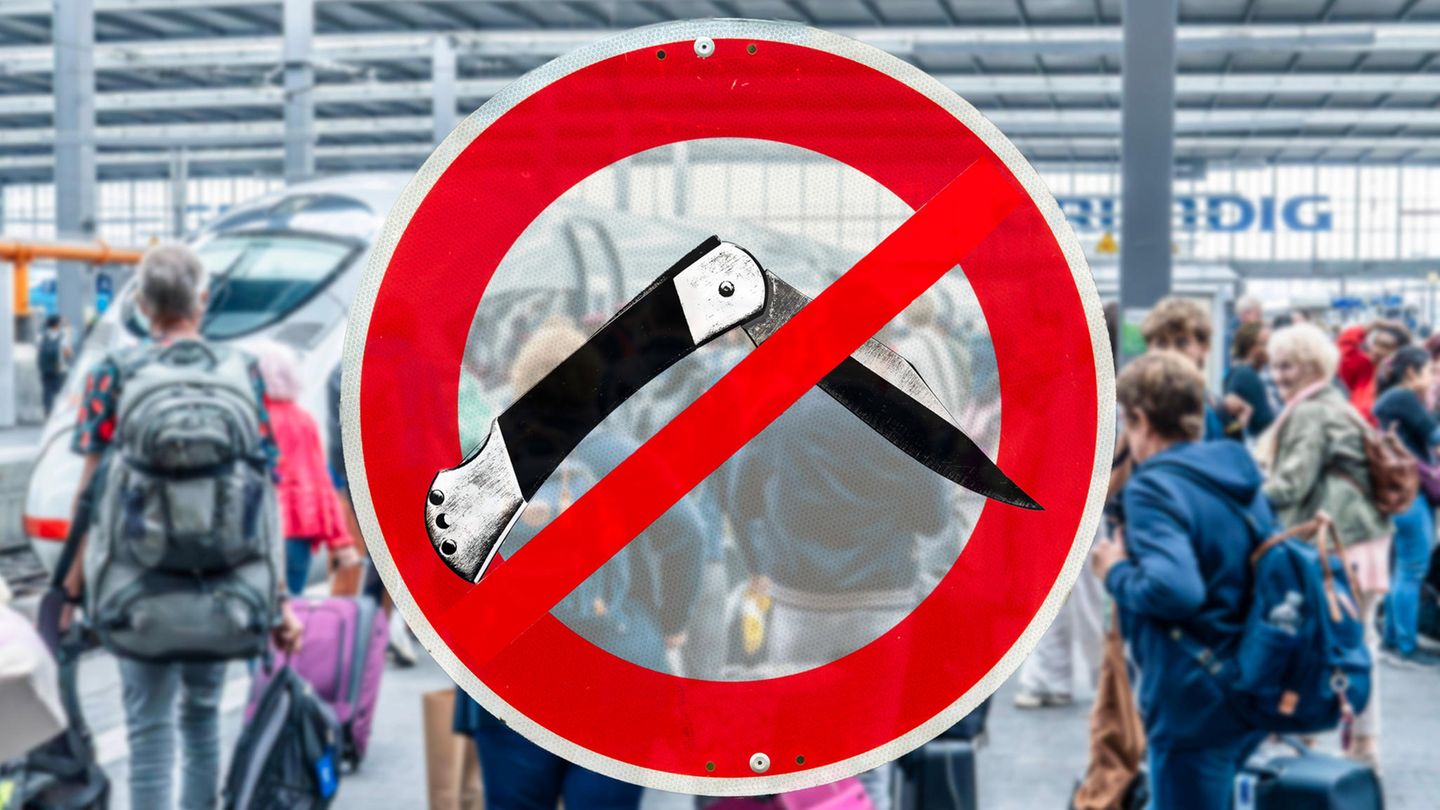The suspected Islamist knife attack in Solingen is fuelling the security debate in Germany. The government wants to improve the situation. That is its plan.
More knife bans, cuts in benefits for certain refugees and more powers for investigative authorities in the fight against terrorism – this is how the traffic light government wants to take action against dangerous people and strengthen internal security. On Thursday, the Bundestag will discuss the plans for the first time. And this is what they look like:
More knife bans for more safety
A complete ban on knives is planned at folk festivals, sporting events, trade fairs, markets and other large events. The states should be able to impose knife and weapon bans on local public transport. A general ban is planned for long-distance rail travel, as well as long-distance bus and ship travel. All switchblades will also be banned. There are exceptions for certain professional groups, such as hunters.
Tighter control of weapons
When monitoring the gun and knife bans, additional powers for random, suspicion-independent checks by the security authorities are planned. Reliability checks will also be tightened to prevent extremists from getting hold of weapons. In addition, the deportation of foreigners will be made easier if crimes have been committed with weapons.
Cancellation of social benefits for refugees
Refugees who are required to leave the country and who were previously registered in another EU country will no longer receive social benefits. According to the European Dublin rules, they would have been obliged to apply for asylum in their EU country of arrival and would have been entitled to support there. With this change, the federal government wants to increase the pressure on refugees who are required to leave the country to contact the deportation authorities themselves or to leave voluntarily.
Loss of protection status when travelling to the home country
If asylum seekers return to their home country, their protection status will be revoked. Exceptions will apply to refugees from Ukraine and if the trip is “morally necessary”, for example to bury close relatives.
Further grounds for exclusion from protection
Under current law, refugees can be denied or denied protection if they commit serious crimes. In future, the decision will also have to take into account whether crimes were committed for anti-Semitic, racist, xenophobic, gender-specific or other inhumane reasons.
Use of biometric data
The Federal Office for Migration and Refugees (Bamf) is to be given the authority to carry out a biometric comparison with publicly available data from the Internet when determining the identity of foreigners. When searching for terrorists and criminal suspects, the Federal Criminal Police Office and the Federal Police are to be given the authority to carry out automated data analysis – for example, to compare photographs with Islamist propaganda videos. The conditions for the use of AI-supported systems are also to be created.
AfD weather, otherwise broad approval
There is broad support in the Bundestag for the measures of the so-called security package of the traffic light coalition. This was evident in the first discussions on the changes to the law. The drafts presented contained “many sensible measures”, even if comprehensive rejections at the German borders and other options for combating irregular migration and terrorism were missing, said the parliamentary manager of the Union faction, Thorsten Frei (CDU).
Politicians from the AfD faction used the debate for election campaign purposes. Their parliamentary manager, Bernd Baumann, said: “Anyone who wants a real change in migration must vote for the AfD.” The domestic policy spokesman, Gottfried Curio, directly addressed the state election in Brandenburg the weekend after next and said: “The SPD and the Greens are dying parties.”
Everything that is “practically and legally possible” will be done to ensure the safety of citizens, said Federal Interior Minister Nancy Faeser (SPD).
Source: Stern
I have been working in the news industry for over 6 years, first as a reporter and now as an editor. I have covered politics extensively, and my work has appeared in major newspapers and online news outlets around the world. In addition to my writing, I also contribute regularly to 24 Hours World.




